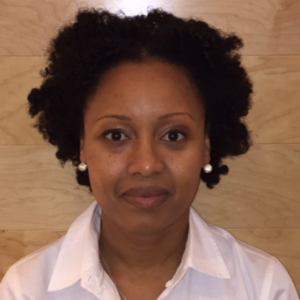3 tips for finding the perfect MDS coordinator
MDS Coordinators, also known as Resident Assessment Coordinators (RNACs) or Nurse Assessment Coordinators, assess and evaluate the quality of medical, psychosocial and physical care provided to long-term care residents. The MDS coordinator manages the resident assessment process by supporting the interdisciplinary team in accurate completion of the Minimum Data Set tool (MDS), following the strict timelines set by federal regulations and assures appropriate reimbursement for Medicare and Medicaid. It is critically important to have a qualified coordinator because accuracy of the MDS drives reimbursement, quality measures and the publically reported Nursing Home Compare five-star rating. The tips below can help you fill this difficult position and find the perfect MDS Coordinator for your facility’s needs.
Tip 1: Know what qualities to look for in a candidate
When searching for MDS coordinator candidates, look for someone who is not only capable technically, but also possesses the skills to adapt quickly to changing demands and solve complex problems. Candidates should be able to follow through with tasks in a timely manner as well as lead and motivate others. After all, the wrong hire can cost your company a huge financial loss.
Other qualities to consider:
- Do the candidates have previous experience working as a MDS Coordinator or RNAC?
- Do they have a solid understanding of RAI and Federal regulations?
- Are they detail-oriented, organized and able to multi-task and oversee various daily functions at the facility?
- Do they possess good communication skills, demonstrate active listening and relate well to others?
- Are they effective leaders? Do they enjoy educating, training, evaluating and motivating others?
- Are they able to remain flexible and adaptable, particularly in stressful situations?
Tip 2: Know what questions to ask about the RAI process
Assess potential candidates for their skills and attributes using a proven assessment tool. A resume and phone interview can only tell you so much about a job applicant. Using a dependable assessment tool such a standard questionnaire will help you analyze the core behavioral traits and cognitive reasoning speed of your applicants. For example, a good test of questions will provide insights into whether the individual is knowledgeable in the areas required to perform in the job role.
Suggested areas to focus your questions on:
- OBRA versus PPS requirements
- MDS assessment types
- MDS regulatory timeframes
- MDS submission process and timeframes
- Accurate MDS coding requirements
- CAA completion and purpose
- Basic Medicare regulations
- State-specific Medicaid case-mix requirements
- Quality measures
Tip 3: Don’t overlook existing qualified staff
Because the role of the MDS Coordinator/RNAC is crucial to the facility’s success, it is important to hire someone who fits well within your existing interdisciplinary team. The good thing is that with a little bit of education and mentoring, the perfect candidate may be right under your nose.
Some facilities spend unnecessary overhead searching for and hiring a replacement MDS Coordinator, only to find out in a few months the person is not a good fit for the team—yet alone the facility. Their knowledge base may not be what you expected, or upon hire, they decide to quickly leave for a different position. Not only did you spend weeks or even months filling the vacancy, but now you have to start your search over again—leaving your facility with limited resources to complete the RAI process according to regulation. Unfortunately, this sets your facility up for citations, possible monetary penalties and provider liability due to missed assessments. To top it off, you risk a drop in your quality measure rating.
Don’t let it get this far. Consider your existing team and see if there is someone within that possesses the desire to grow and learn something new.
Consider the following in looking for employees to promote from within:
- Do they proactively take on new responsibilities or enjoy spearheading special projects?
- How well do they interact with residents?
- Are they familiar with facility policies?
- Do they work well with the interdisciplinary team and are they respected by coworkers?
- Have there been recorded complaints with prior work performance?
- Do they complete tasks on time?
- Do they possess a vested interest in the facility?
If you have identified an existing member of your team who encompasses the qualities listed above, where do you go from here? For starters, it’s important to equip him or her with the tools needed to perform in their new role. It is not in the best interest of the facility to hand your staff member the RAI manual and expect them to acclimate on their own. Find an MDS training course, consultant or mentoring program that provides the education needed to be successful. If the candidate has already been exposed to the facility culture, works well with the interdisciplinary team and is eager to grow in their new role, transitioning should be easy.
Don’t put your facility at a financial risk. The MDS affects all aspects of your SNF.
 Terry Raser is an RN/MDS Coordinator and a senior consultant at LW Consulting, Harrisburg, Pennsylvania. She has over 35 years’ experience in the long-term care industry assisting facilities with successful RAI processes and case-mix maximization, and has trained many facilities on setting up successful restorative programs to assist in optimizing CMI when acuity is low. She can be reached at traser@lw-consult.com
Terry Raser is an RN/MDS Coordinator and a senior consultant at LW Consulting, Harrisburg, Pennsylvania. She has over 35 years’ experience in the long-term care industry assisting facilities with successful RAI processes and case-mix maximization, and has trained many facilities on setting up successful restorative programs to assist in optimizing CMI when acuity is low. She can be reached at traser@lw-consult.com
I Advance Senior Care is the industry-leading source for practical, in-depth, business-building, and resident care information for owners, executives, administrators, and directors of nursing at assisted living communities, skilled nursing facilities, post-acute facilities, and continuing care retirement communities. The I Advance Senior Care editorial team and industry experts provide market analysis, strategic direction, policy commentary, clinical best-practices, business management, and technology breakthroughs.
I Advance Senior Care is part of the Institute for the Advancement of Senior Care and published by Plain-English Health Care.
Related Articles
Topics: Articles , Medicare/Medicaid , Regulatory Compliance , Resident Care , Staffing










